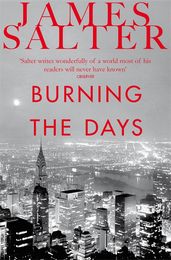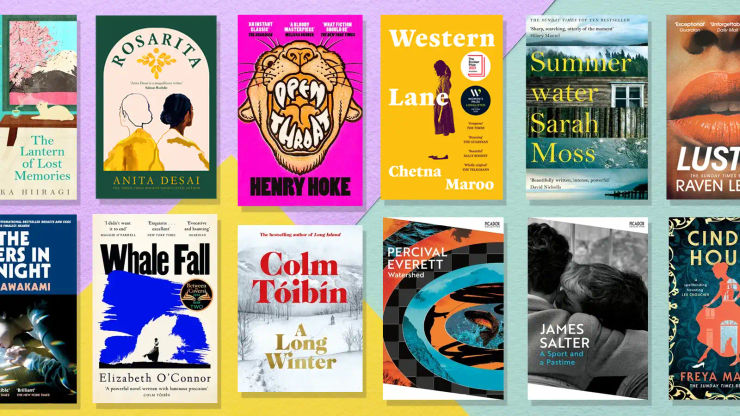James Salter - a beginner's guide
James Salter has a well-deserved reputation as one of the finest writers of our time. Picador Senior Editor, Kris Doyle offers some expert advice to anyone unsure of where to get started.

James Salter has a well-deserved reputation as one of the finest writers of our time and has been compared to great American writers from Ernest Hemingway to Richard Yates.
Picador Senior Editor, Kris Doyle, explains why he finds himself continually returning to Salter's work and offers some expert advice to anyone unsure of where to get started.
'When I want to find the best writing about sex, about meals, about love, about time's indifference, about ambition and disappointment, about the human heart brim-full of joy and the human soul shattered, abandoned, indelibly marked by another's cruelty, I read James Salter.'
My faith in James Salter's writing is unshakable. I am drawn back to his work frequently, consistently finding greatness there. For me, it's not just Salter's art that means something; his values mean something too. I respond to his prose, an unusual blend of lushness and restraint, but I think I'm particularly susceptible to his sensibility: an epicurean veneration of human life, formed not in spite of its vicissitudes but because of them.
Nearly everyone who knows anything about James Salter cites the variety of his accomplishments. He flew combat missions in Korea; he quit the air force to become a lauded writer; he had a career in moviemaking and worked with Roman Polanski, Vanessa Redgrave and Robert Redford. The list goes on; you can look it up.
I tell you this because Salter is a life writer. I mean both that he draws a lot of his material from his own life, so it helps his ninety years were so replete; and that his writing respects the consequence of life, sanctifies the felt experience of the moment, tries to shore it up against destruction by time.
Here is the epigraph from his final novel, All That Is: ‘There comes a time when you realize that everything is a dream, and only those things preserved in writing have any possibility of being real.' With everything he wrote, Salter was engaged in a serious endeavour: to make something lasting from the great heap of days. This is not an insignificant challenge. For him, it was everything. He told Adam Begley in 1990: ‘There came a time when I felt I was not going to be satisfied with life unless I could write. So I did what was essential for me, or else perhaps the most important part of me would have perished.' I have never read this as melodrama.
Salter has the technical command to realize this bold intention. He clearly delights in noticing the particulars that constitute a life, a character, a scene; he has a pilot's eye and will give details, clear and succinct, but only ever what is necessary. (Perhaps he never lost the judiciousness required on the radio and the discipline instilled in him by the military.)
He captures the beautiful and the sad; he shifts bravely from the quotidian to the poetic, bluntly from the heartfelt to the heartless; he ceaselessly portrays the ecstasy of being alive but never loses the awareness of how soon it all ends.
When I want to find the best writing about sex, about meals, about love, about time's indifference, about ambition and disappointment, about the human heart brim-full of joy and the human soul shattered, abandoned, indelibly marked by another's cruelty, I read James Salter.
For this and more, I call Salter a great writer. I think he should be famous. I cannot imagine he will ever achieve a faultless literary glory commensurate with my admiration. I commend him to you.
All That Is
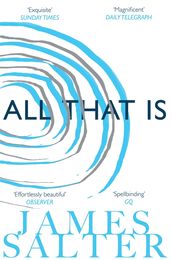
The Entry Point
Salter's last novel is a sort of summation of the themes of his career, so I think it's a good place to start.
It's about a life unfolding in a world on the brink of change. Philip Bowman's story opens in 1945, on board a US battleship bound for Japan. After the war, marked by it as everyone was, he becomes an editor of books in New York in the second half of the twentieth century. He's a man who carries a bit of civilization with him. But for all his success, what eludes him is love.
Collected Stories
by James Salter
The Quick Fix
In his lifetime, Salter was probably most widely acclaimed for his stories – he won the PEN/Faulkner, PEN/Malamud and the Rea Award – and they are all collected here in this indispensable volume.
It might seem an obvious thing to say, but the variety seems noteworthy to me. He can write plain, constricted lives or glamourous ones; he can write about America and Europe, about military men and civilians; he's just as good whether the story consists of mostly dialogue, action or description.
The constant subject is people, and the way they come together and move apart. Everyone has their favourites. But since this piece is supposed to be about offering a place to begin: I like ‘My Lord You'. When I asked Salter to choose one to serialize on our website, he chose ‘Comet'. ‘Last Night' is probably the most famous because it was the only story of his published in the New Yorker.
A Sport and a Pastime
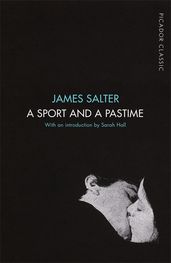
The Breakout Book
With A Sport and a Pastime, his third novel, Salter attained his mature style. The sentences are lapidary and consequential. Salter deploys them to produce a complete sensory evocation of rural France and a relationship that takes place there.
The novel tells of an affair between an American, recently absconded from Yale, and a young French shop-girl. What makes it unique is that it's narrated by someone else, an unreliable but eloquent voyeur who seems willing and able to imagine every moment of the couple's time together, no matter how intimate. This brilliant work of sustained eroticism might include some of the best writing about sex ever. Salter always writes sex well, but never better than here.
Light Years
by James Salter
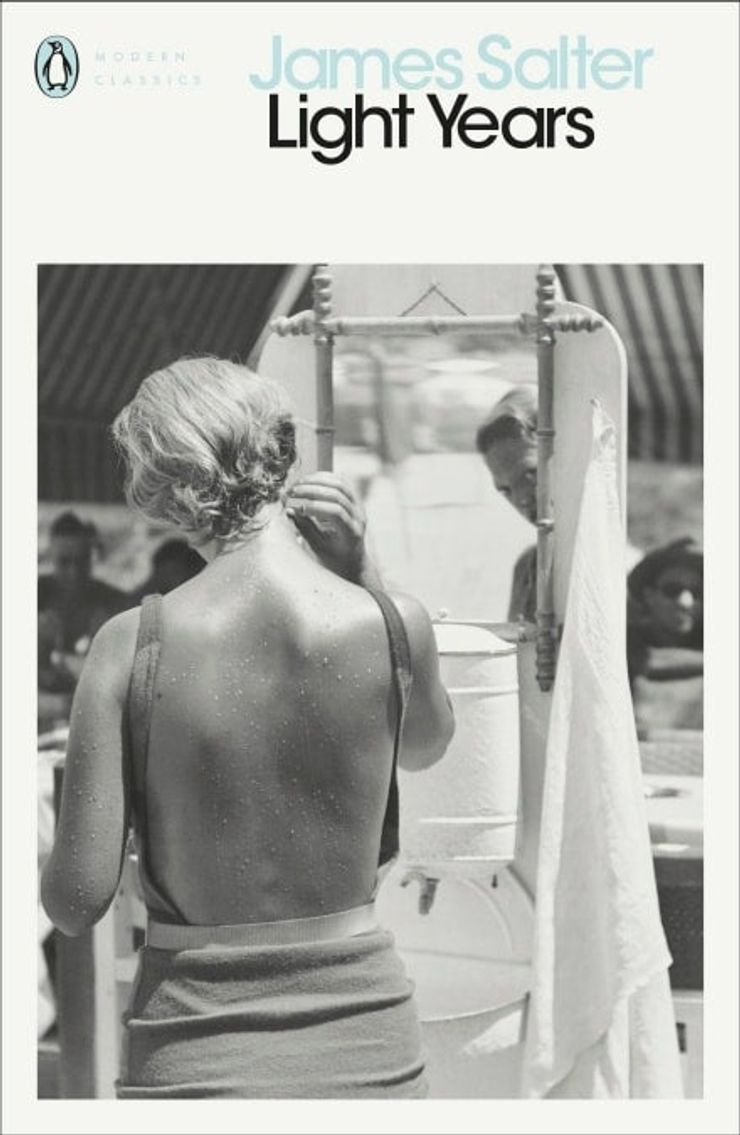
The Masterpiece
Light Years thrives on the meeting of form, style and subject. It anatomizes a single family, portrays the dissolution of a once-bright marriage. Salter unburdens himself from the social realist's need to chronicle every last dull fact, choosing instead to write only what stood out from all of that, as in life you remember only the things that are important.
His skill is to find in the intense lyricism of his prose a register that projects the scenes in the novel, with their vivid sensory power and fleeting dreamlike quality, as gleaming flashes of memory before our own mind's eye; the total lived experience in a series of luminous moments. This is a book about hope and betrayal, the necessity of both; it is about time, relentless in its pressure and finite in its quantity; and it is about coming, however reluctantly, to knowledge. ‘There are two kinds of life,' one of the book's lead characters says, ‘the one people believe you are living, and there is the other.' The speaker may be as deceived as the rest. Beautiful, devastating, true.
Burning the Days
by James Salter
The One I Go Back To Most
I suspect most people wouldn't choose Salter's memoir as the book of his they're fondest of, but I don't imagine it now comes as a surprise. I think it has everything. Salter cared about reputation, success, glory; here he writes of them. Not just his own, but other people's too – and the stakes are raised because the lives are real.
He covers family and relationships, his decision to resign in order to write, and his time in the movies. He is especially good on the gods of the sky. The flying sections are as gripping as those in his fiction. Salter captures the amazement of being airborne; the joy and lift of it: thrilling, unexpected, free. He writes terrifically of war, the closeness of death, the desire to be the best fighter, his sadness that he never became an ace, and what it meant to watch others outstrip his achievements as a pilot.
Memory is powerful: it provides a record of the world as it was, and the permanence of its imprint offers a value judgement. You cannot help feel what it all meant for him. Yet what is unsaid can sometimes mean just as much, or more.
The Picador Classic edition of A Sport and a Pastime, with a new introduction from Sarah Hall, is out now.

